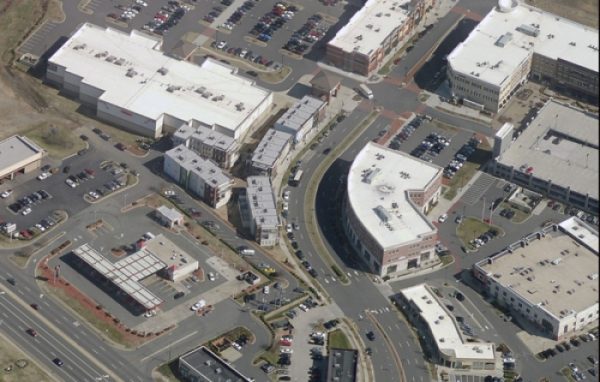Can Charlotte growth policies get smarter?

- How can the city of Charlotte boost both the value of its neighborhoods and their quality of life?
- What national trends should developers, planners and neighborhood residents be aware of?
- How do different development patterns affect the need for city spending?
Those questions and more will be part of the discussion at a public lecture Tuesday, sponsored by PlanCharlotte.org and the City of Charlotte. The event will be 6-8 p.m. at UNC Charlotte’s center city campus.
The speaker will be William Fulton, a former Ventura, Calif., mayor and city council member who is vice president for policy at Smart Growth America. He’ll talk about three of the major trends affecting U.S. cities, including Charlotte.
“The housing market is trending away from suburban living,” Fulton said in an interview. More people are looking for city neighborhoods with walkable amenities, he said.
The second change, he said, is economic: “The DNA for economic growth is changing.” A construction-and-development economy is changing into one tied to business innovation and research. And innovation is nurtured in walkable, urban neighborhoods, he said.
Third, Fulton said, is the fiscal strain cities are feeling, and how suburban development patterns can exacerbate that. He’ll point to recent studies in Raleigh and Nashville. For example, the Nashville study, (read it here) compared tax revenues and cost-to-serve for a downtown infill development, a greenfield New Urbanist (i.e., walkable and mixed-use) development, and a conventional suburban subdivision. It found lower service costs for the New Urbanist and downtown infill developments. The downtown infill generated more than twice as much per-unit tax revenue (property taxes plus projected sales and miscellaneous taxes), as the conventional subdivision. And the infill development generated a larger surplus than the conventional subdivision, with the downtown development generating almost 1,150 times the net revenue generated by the suburban subdivision.
The public lecture is funded by a grant the City of Charlotte received from Smart Growth America, a nonprofit coalition of dozens of national and local groups such as CEOs for Cities, the Trust for Public Land, and PolicyLink. SGA advocates for stronger neighborhoods and transportation systems and for saving taxpayer money through smarter growth choices.
Wednesday city, county and Charlotte-Mecklenburg Schools staff will take part in workshops examining ideas and strategies for five Charlotte neighborhoods that are part of the city’s Comprehensive Neighborhood Improvement Program (CNIP).
The idea, according to Tom Warshauer, community engagement manager for the city’s Neighborhood and Business Services Department, is to look at the CNIP areas and learn from national expertise about the most effective ways the city could invest there. The city was seeing trends that “some of our suburban areas were not faring very well, despite new investment,” he said. What can the city do, the staff asked.
As one example, Warshauer said, should the city look at parks and greenways as lures for private investment and development, the way it has done with its light rail transit, by encouraging transit-oriented development? What about “greenway-oriented-development,” Warshauer asked.
“People want to live next to greenways,” Warshauer said in an interview. “But we aren’t working, collaboratively, to see that. People will pay more to live near a park.”
As an example, he pointed to Hornets Nest Park on Beatties Ford Road.
It’s surrounded by subdivisions but none connects directly to the park. “We have phenomenal amenities, that neighborhoods have to drive all the way around to get into,” he said.
The workshops will look at more than parks and greenways, he said. The five areas to be studied in the workshops are:
- The Sunset Road-Beatties Ford Road area.
- The Prosperity Village area at Interstate 485 and Prosperity Church Road.
- Parts of southwest Charlotte including the Ayrsley-Whitehall area.
- The area near Johnson C. Smith University, taking in West Trade Street, Rozzelles Ferry and Beatties Ford roads.
- The Central Avenue-Albemarle Road-Shamrock Drive area of east Charlotte, including the now-city-owned Eastland Mall site.
The workshops on Wednesday are not open to the public. Assisting in the workshops will be Fulton and Roger Millar, vice president and director of Smart Growth America’s Leadership Institute, which provides technical assistance programs for state and local government, and director of the National Complete Streets Coalition.
Charlotte is one of 22 cities selected to receive free SGA assistance. SGA undertakes these workshops through funding from the Environmental Protection Agency. Among the other recipients for technical assistance this year are Houston, Cincinnati, Boulder, Colo., and Virginia Beach, Va.